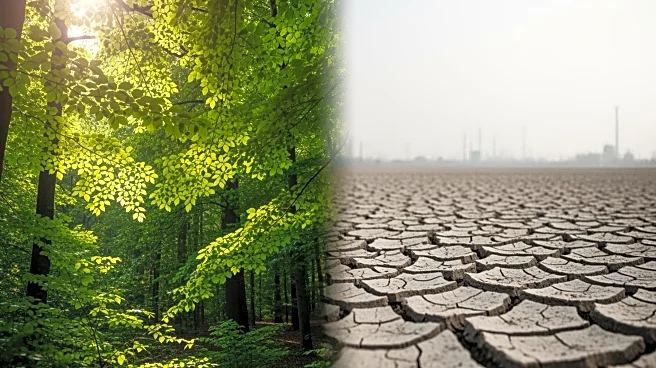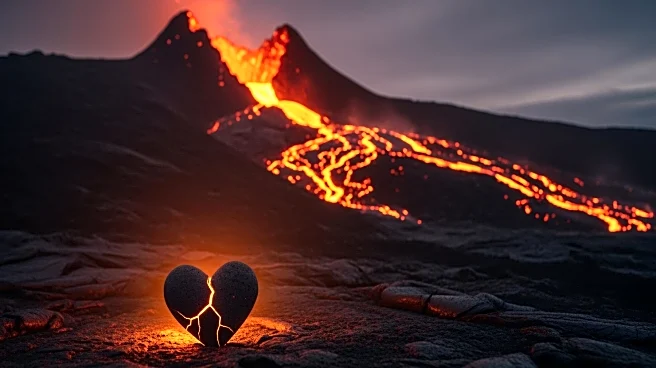What's Happening?
The COP30 presidency, led by President Correa do Lago, announced plans to publish 'roadmaps' addressing fossil fuels and forests. This decision comes as a response to the lack of consensus on these critical issues during the global climate talks. The roadmaps aim
to address the concerns of developing countries, which have been a significant point of contention in the discussions. The presidency's move is seen as a strategic effort to provide a structured approach to these environmental challenges, ensuring that the voices of developing nations are considered in the global climate agenda.
Why It's Important?
The publication of these roadmaps is crucial as it represents a step towards addressing the complex issues surrounding fossil fuels and deforestation, which are pivotal in the fight against climate change. By focusing on the concerns of developing countries, the COP30 presidency acknowledges the disproportionate impact of climate change on these nations and the need for tailored solutions. This initiative could influence future climate policies and negotiations, potentially leading to more inclusive and effective global strategies. The roadmaps may also serve as a framework for other international bodies and governments to develop their own policies, thereby amplifying their impact.
What's Next?
The release of the roadmaps is expected to guide future discussions and negotiations at COP30 and beyond. Stakeholders, including governments, environmental organizations, and industry leaders, will likely analyze these documents to align their strategies with the proposed frameworks. The roadmaps could also prompt further dialogue on how to balance economic development with environmental sustainability, particularly in regions heavily reliant on fossil fuels. As these discussions progress, the international community will be watching closely to see how these roadmaps influence policy decisions and whether they lead to tangible actions in reducing carbon emissions and preserving forests.















